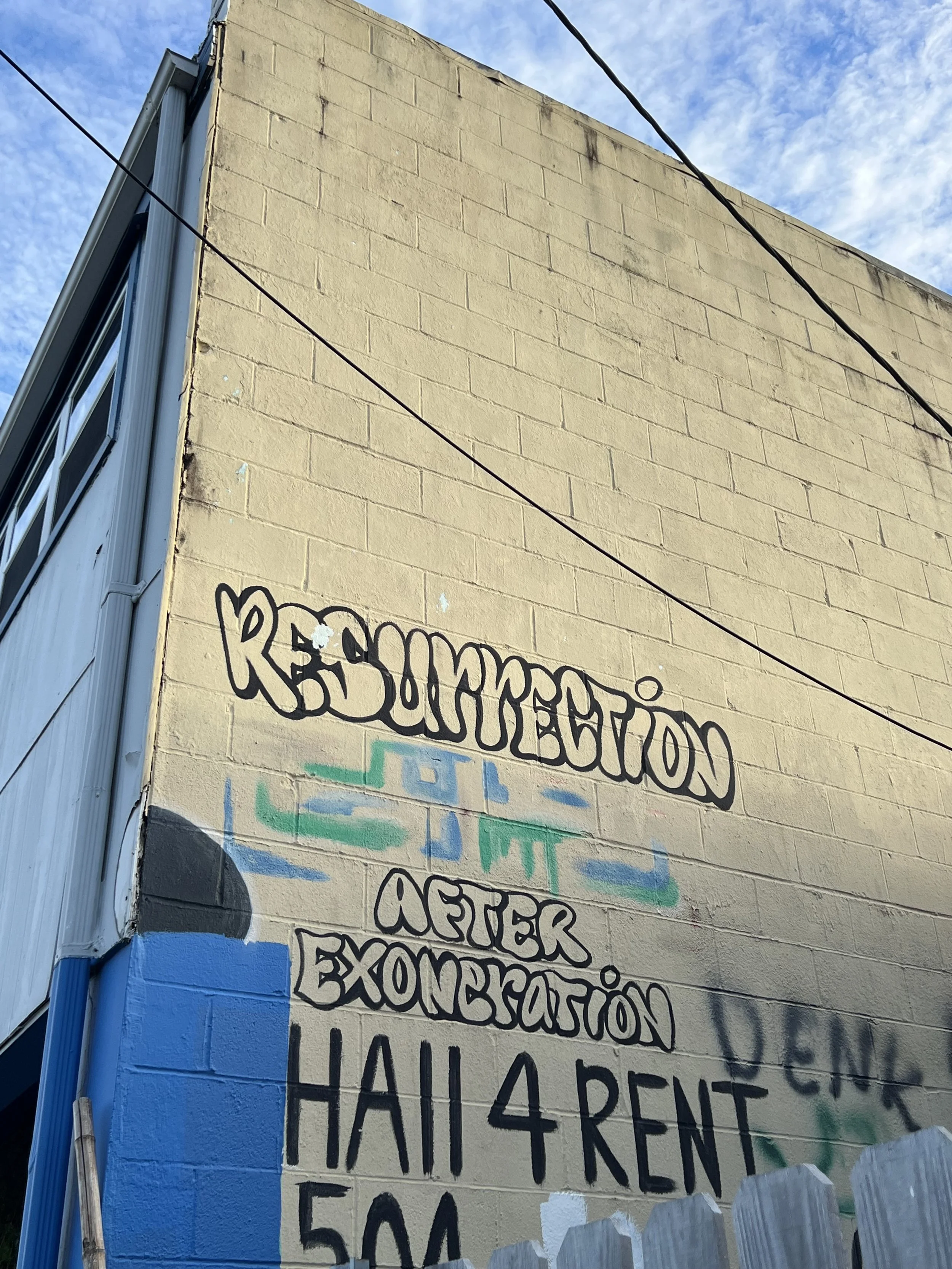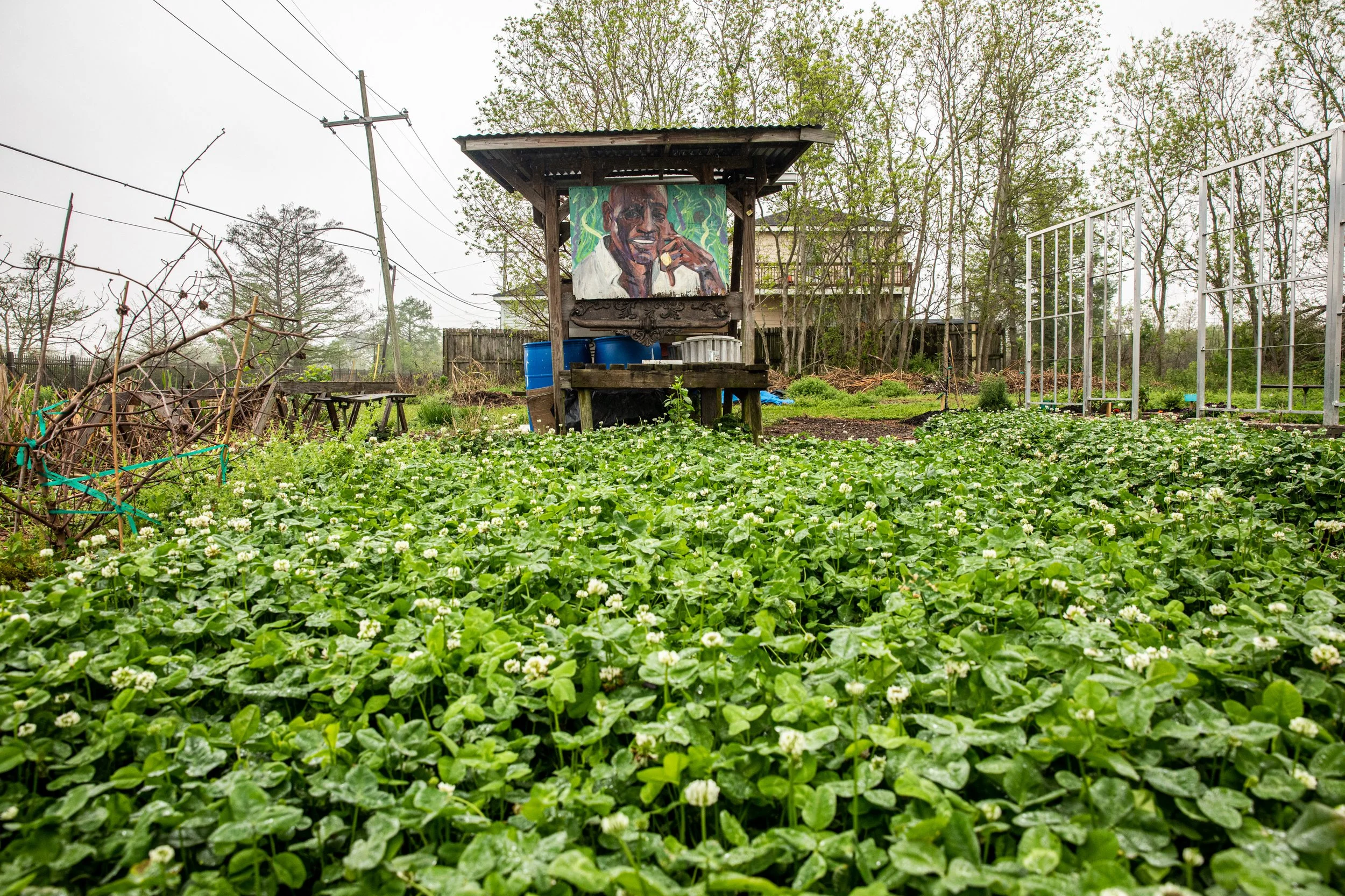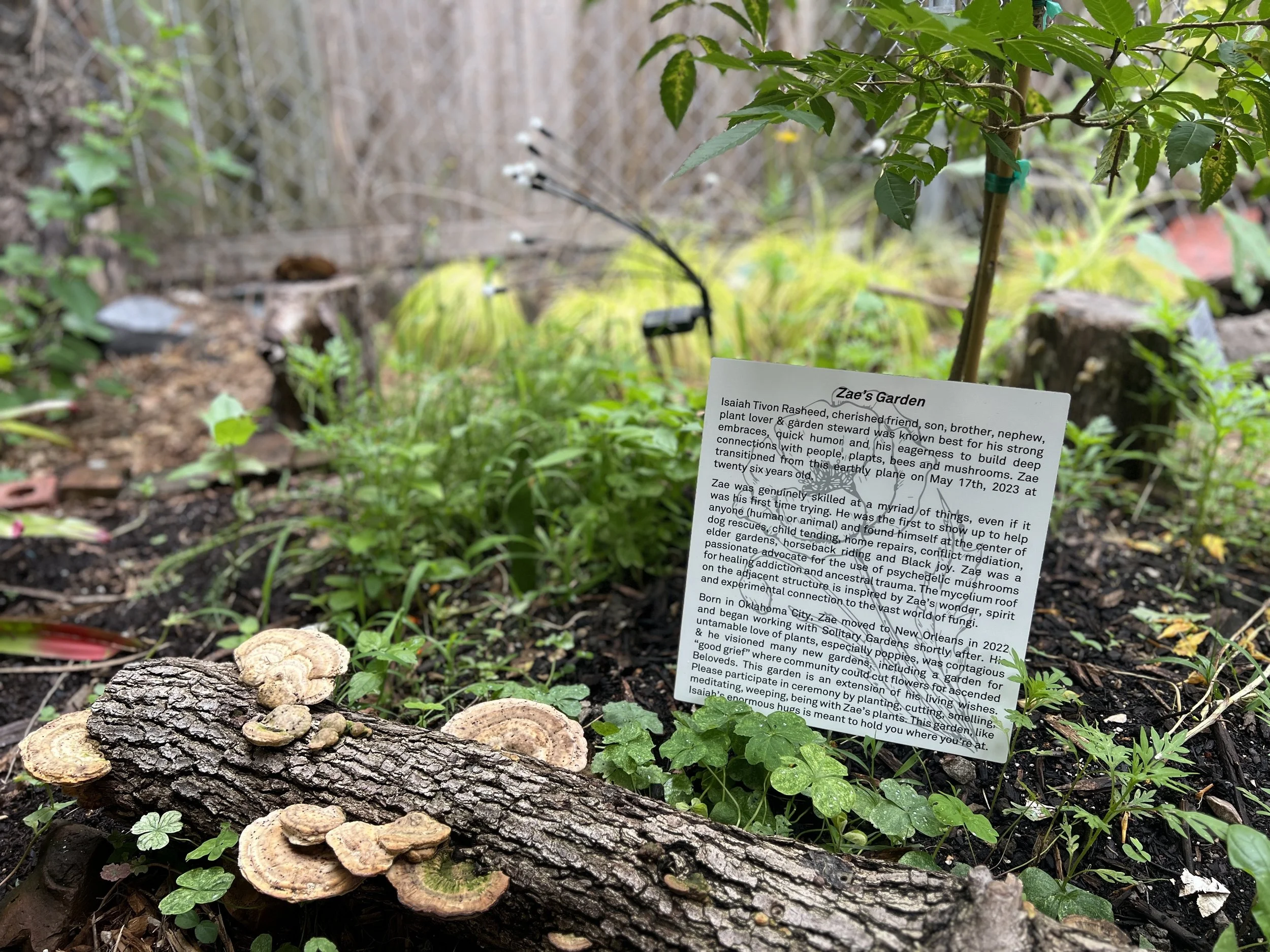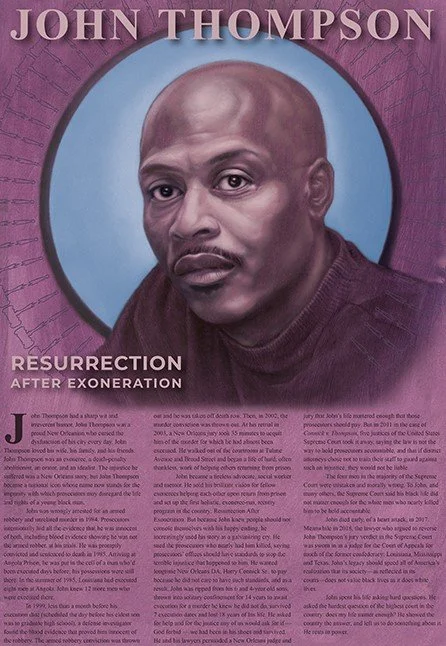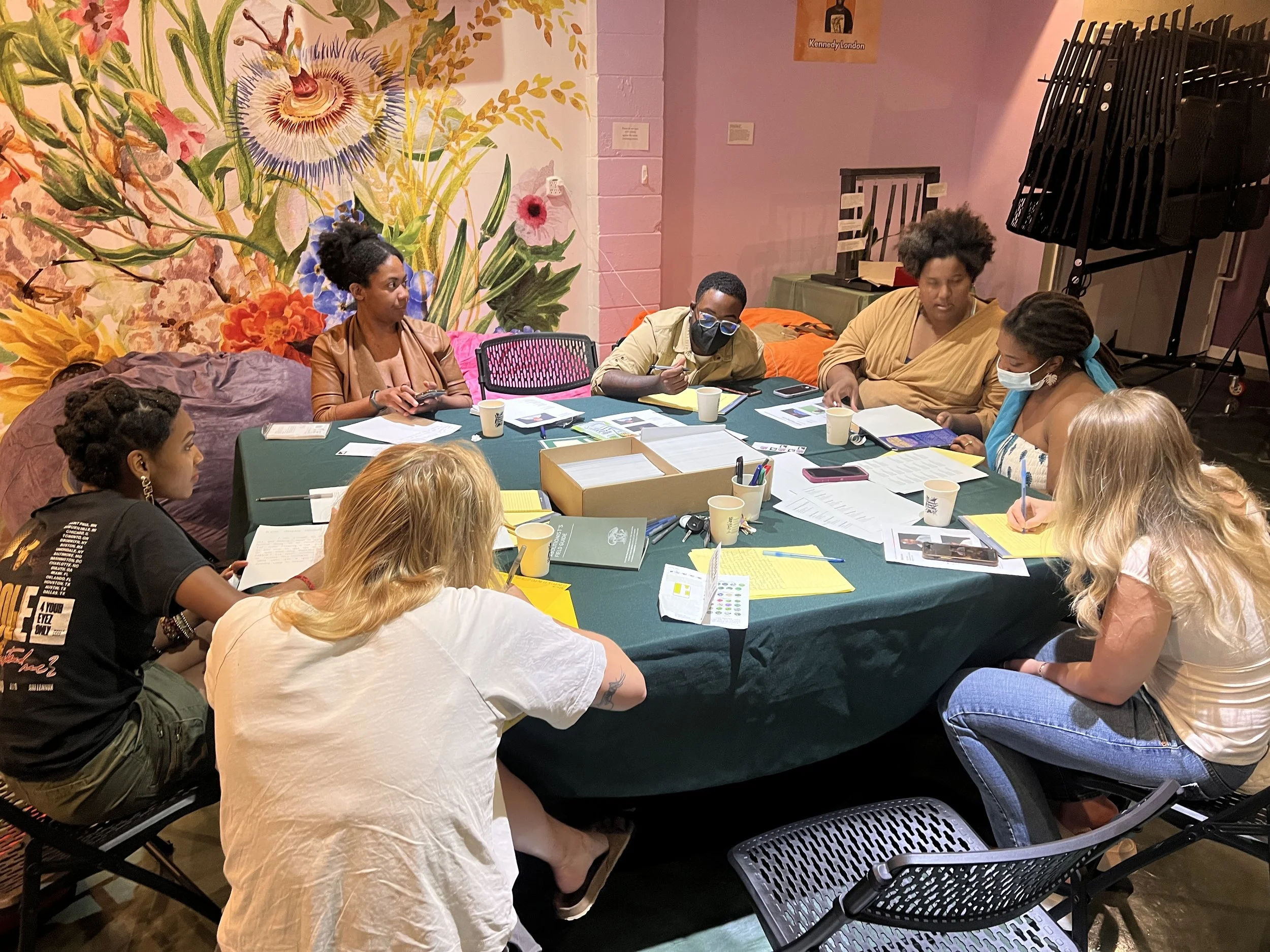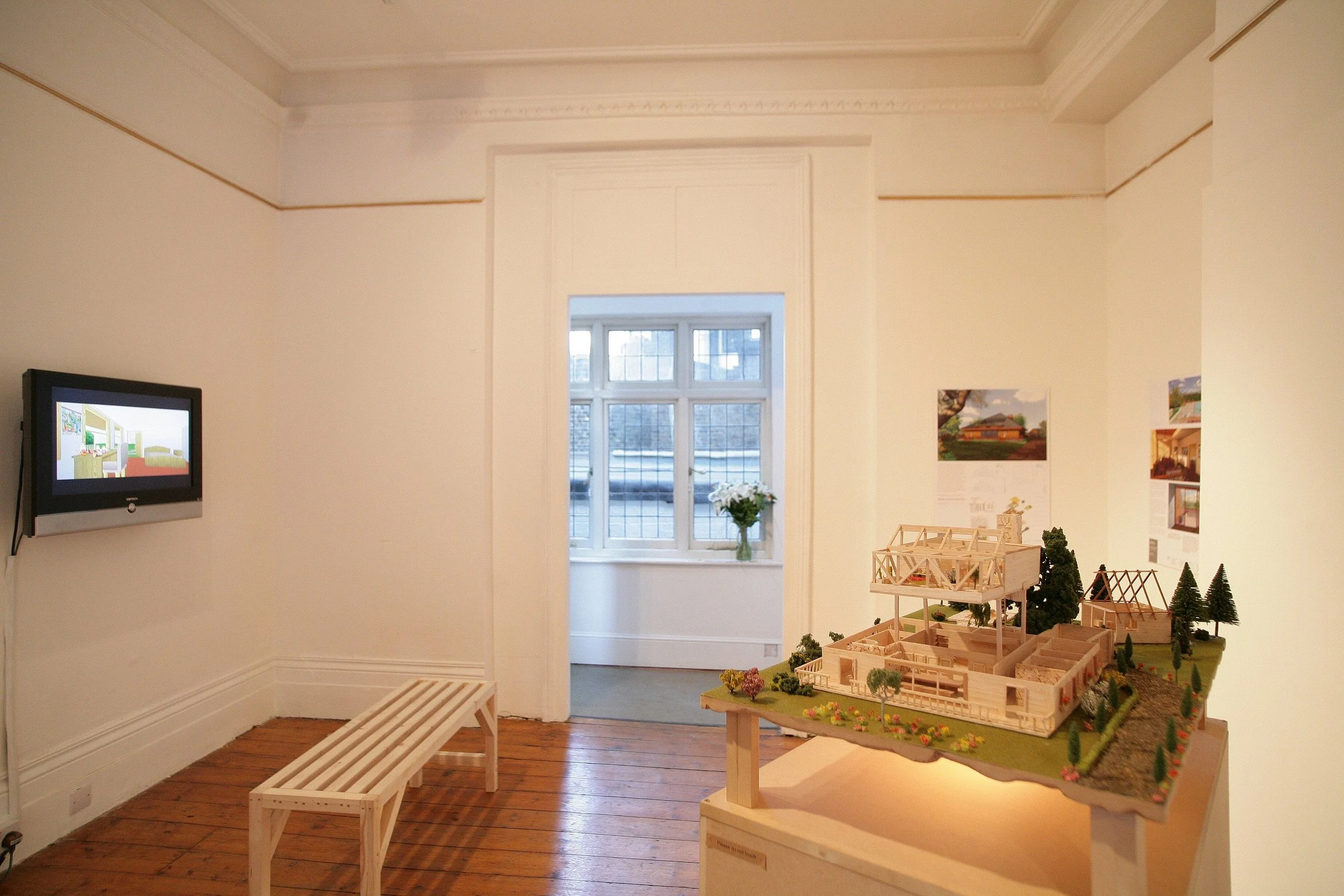JOHN THOMPSON LEGACY CENTER FOR ABOLITION AND BEYOND
John Thompson (JT) spent 18 years wrongly incarcerated, including 14 years on death row at the Louisiana State Penitentiary before he was exonerated of all charges in 2003. He won a civil lawsuit against the State of Louisiana, specifically the racist administration led by then-District Attorney Harry Connick, Sr. for $20 million, which was eventually overturned by the US Supreme Court. He went on to create Resurrection After Exoneration (RAE) at 1212 St. Bernard Avenue. What began as an organization to support people like him returning home grew into an organization that combined the insights of formerly incarcerated people with advocacy for reform and true justice.
Following JT’s untimely death, RAE 2.0 created the John Thompson Legacy Center (JTLC) to bring together those who loved and learned from JT. The JTLC is a space to support those most impacted by the criminal punishment system and help them to thrive. Located in the 7th Ward, it has supported community preparedness, hosting solar powered generators, a plant medicine apothecary, community education events, and art installations.
Moving forward, the John Thompson Legacy Center for Abolition and Beyond will become the headquarters for Freedom to Grow, out of which the flagship initiative of our inaugural year—the Artist in Residence (AIR) Program—will be based. A 3-month pioneering collaboration among elder movement luminaries, emerging archivists, and artists, the AIR Program will create vibrant works that grace the rooms of the Legacy Center.
LEGACY GARDENS
The Legacy Center will feature gardens that serve as living archives, where plants with medicinal, historical, and personal significance to figures featured in the Legacy Center will cultivate collective memory. Each Legacy Garden will invite community members, particularly those impacted by carceral systems, to engage with the Legacy of elders. The gardens will act as a living testament to the significance of plants and nature in the histories of resistance and liberation, connecting the past, present, and future. Visitors will be led on a journey through time, symbolizing how the principles of abolition can be grown, nurtured, and sustained. The Legacy Gardens will contribute to the Center’s sustainability by supporting the Abolitionist’s Apothecary, which offers low-cost healing resources to individuals impacted by systemic injustice, as well as our Wellness CSA subscription boxes. Plants and herbs will be cultivated through our Liberation Landscaping program, which creates garden plots to promote healing and empowerment across communities.
ARCHIVE OF RADICAL HISTORY
The Legacy Center will honor the too-often untold radical history of the movement leaders who began their organizing journeys while incarcerated, only to be released and pave the way for criminal justice reform and abolition. At the heart of the Legacy Center’s mission lives the knowledge that few of the challenges we face are new. Our movement elders offer wisdom, clarity of vision, and lessons learned through mistakes and triumphs that can guide us through uncertain moments and towards our own action. This will be a site of partnership of archivists and artists to to create installations that illuminate the stories and legacies of influential figures whose organizing journeys began while incarcerated, including John Thompson, Herman Wallace, Albert Woodfox, Robert King, Norris Henderson, and others nominated by community members throughout the duration of the project.
ORGANIZING LAB + ARTIST RESIDENCY
The JTLC Organizing Lab will be dedicated to fostering the next generation of leaders in the abolition movement. With space for archivists, artists, and organizers to converge and share research, engage in collaborative learning, and create new work and thinking to fuel the present and future movement. This will include a collaborative space for organizations advancing abolitionist work, with potential to host meetings, workshops, screenings, and classes focused on abolition, social justice and community organizing. Additionally, dedicated studio space for our residency program will support artists engaging with themes of abolition, justice, and liberation, offering them the space and resources to create impactful, resonant works that inspire and challenge.
MUSEUM OF ABOLITION
The Legacy Center will look to the future while honoring the past. The Museum of Abolition will be an evolving space inspired by projects like Barring Freedom, Seeing Through Stone, and No Justice Without Love. This museum will explore how art can uniquely convey abolitionist principles to those who may be resistant or unaware, with a focus on the role of art in abolition and future visions. Exhibits will demonstrate how art has served—and continues to serve—as a powerful medium for education and mobilization around abolition. Through curated displays and interactive experiences, visitors will be invited to envision and contribute to a future without prisons, fostering a collective sense of possibility and purpose.
